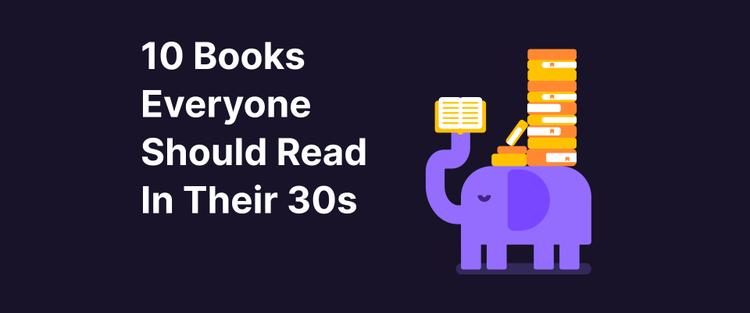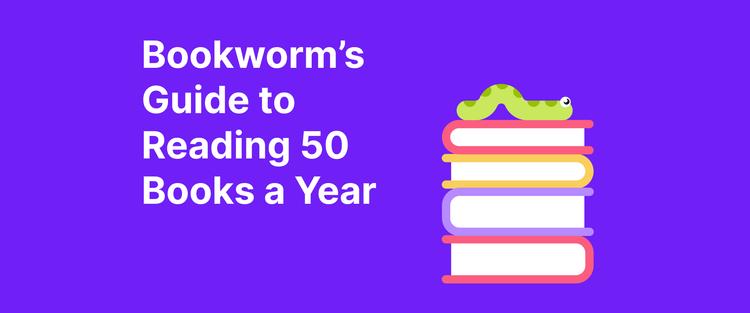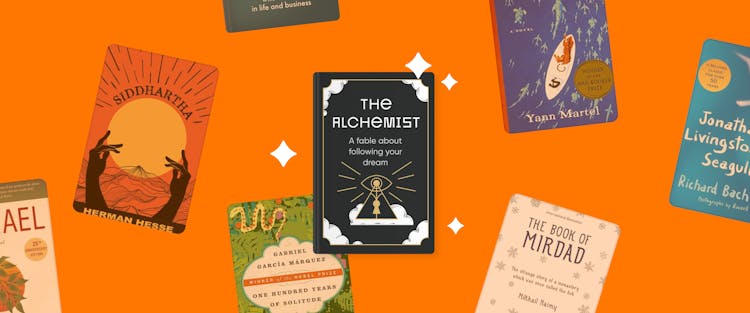In the quest for books like '1984,' readers seek out narratives that unflinchingly address the power dynamics and challenges to freedom within dystopian worlds. Set in a future world with absolute conformity and surveillance, these settings echo the themes of dystopian novels. This article explores both classic and modern titles that reflect the principles of George Orwell’s "1984," focusing on the tension between authoritarianism and individuality. Read on to embark on a journey through this hand-picked book list, where each story adds a unique voice to the dialogue started by Orwell without overshadowing his masterpiece.
Key Takeaways
Classic and modern dystopian literature, including '1984' by George Orwell, explores themes of surveillance, government control, and individual freedoms, often reflecting individuals' fears of authoritarian regimes and the suppression of thought.
As you will see in the titles we suggest, different dystopians utilize varied mechanisms of control, from the pleasure-inducing methods of 'Brave New World' to the brutal oppression in 'The Handmaid’s Tale.' However, they all grapple with the consequences of power and the resilience of the human spirit against it.
While these works are diverse in their approaches to presenting dystopian futures, they share common threads with '1984,' revealing the persistent relevance of its themes concerning the dangers of totalitarianism and the importance of personal autonomy.
Understanding Orwell's classic '1984'
Few works of literature have become as synonymous with the term ‘dystopia’ as George Orwell’s classic, '1984'. Set in a future society under constant scrutiny by an omnipotent government surveillance system, the novel explores themes of censorship, freedom, government control, and propaganda that highlight Big Brother’s authoritarian regime. As one of the most iconic dystopian novels, Orwell’s chilling portrait of a society where individual thought is suppressed under the oppressive weight of state-enforced manipulation is skillfully painted through constructs like Newspeak and doublethink.
Characters, such as Winston Smith from the Ministry of Truth, personify the state’s pervasive influence on individuals’ lives. As we delve into the dystopian worlds crafted by various authors, we’ll often find echoes of Orwell’s classic dystopian vision, underscoring its lasting impact on world literature.
16 books to read if you liked '1984'
George Orwell's '1984' is not an easy book anyone can read. However, given the fact that more than 30 million copies of this book were sold, it definitely did find its audience. And if you are looking for more stories like this, '1984' has most likely resonated with you, too. If so, read on to explore a list of must-read dystopian books that, much like '1984,' present a cautionary examination of society through the lens of an oppressive and controlled world. These books like '1984' are not just stories; they are reflections of potential realities, warnings of what could be if we tread the path of totalitarianism and forsake our individual liberties.
So, buckle up and prepare to embark on a literary journey through some of the most compelling and thought-provoking dystopian titles available.
1. 'Brave New World' by Aldous Huxley
Aldous Huxley's 'Brave New World' envisions a future where individuals are predestined for their societal roles and kept in line through a combination of genetic engineering, psychological conditioning, and a drug called soma that ensures compliance by providing an escape from discomfort. This world is one of apparent harmony and stability, achieved through the sacrifice of personal identity and the suppression of dissenting thoughts.
Similarities between the books:
Pervasively controlled society;
Stark loss of individual freedom;
Advanced technology and psychological manipulation;
State-imposed ideological truth.
2. 'Fahrenheit 451' by Ray Bradbury
'Fahrenheit 451,' a classic science fiction novel by Ray Bradbury, imagines a future where literature is outlawed and ‘firemen’ burn books. The protagonist, Guy Montag, is a fireman who becomes disillusioned with the mindless censorship and begins to seek the truth behind the printed word. As Montag’s journey unfolds, he confronts the emptiness of his existence and the society he lives in.
Similarities between the books:
Ominous government censorship;
Deliberate erasure of historical truths;
Intrusive surveillance techniques;
Manipulative use of fear.
3. 'The Handmaid's Tale' by Margaret Atwood
Margaret Atwood's 'The Handmaid's Tale' paints a harrowing picture of Gilead, a totalitarian society built on the ruins of the United States, where women are stripped of their rights and forced into reproductive servitude. The narrative, through its protagonist Offred, reveals the grim realities of a regime that uses religion as a tool for control and oppression.
Similarities between the books:
Stringently authoritarian surveillance;
Manipulative language alteration;
Chilling public executions;
Courageous themes of resistance.
4. 'The Hunger Games' by Suzanne Collins
Set in a post-apocalyptic world, 'The Hunger Games' series by Suzanne Collins unveils a dystopian future where a totalitarian government, known as the Capitol, exerts its power over the rest of the nation of Panem through annual televised death matches. These games are a form of punishment and control, reminiscent of the past rebellion of the districts. Katniss Everdeen, the story’s heroine, becomes an unwitting symbol of resistance and hope against the oppressive regime.
Similarities between the books:
Tightly monitored governmental oversight;
An iconic symbol of rebellion;
Punitive public spectacle as suppression;
Strategic propaganda and censorship.
5. 'A Clockwork Orange' by Anthony Burgess
Anthony Burgess's 'A Clockwork Orange' is a provocative novel that delves into the depths of free will, the psychology of violence, and the ethics of coercive rehabilitation. It tells the tale of Alex, a delinquent youth who revels in acts of ultra-violence and his subsequent subjection to experimental psychological conditioning aimed at forcibly reforming his behavior. The novel's examination of a society that attempts to curb individual freedoms for the greater good draws stark parallels to the themes in George Orwell's '1984'.
Similarities between the books:
Intrusive governmental control;
Vibrant themes of youthful rebellion;
Intense protagonist suffering;
Innovative language as a method of control.
6. 'The Circle' by Dave Eggers
Dave Eggers’s 'The Circle' is a thought-provoking novel that delves into the potential perils of a society dominated by a single tech company. The narrative follows Mae Holland, a young woman and employee of The Circle, as she uncovers the dark side of the company’s agenda to monopolize personal information and enforce transparency. This dystopian vision echoes the themes of surveillance and loss of privacy found in George Orwell’s '1984'.
Similarities between the books:
All-encompassing surveillance;
Near-total loss of privacy;
Enforced conformity and manipulated realities;
Overbearing, omnipresent, controlling entity.
7. 'Parable of the Sower' and 'Parable of the Talents' by Octavia E. Butler
'Parable of the Sower' and 'Parable of the Talents' by Octavia E. Butler portray a dystopian America where society has crumbled under the weight of environmental disasters and economic instability. In these novels, the protagonist Lauren Olamina, with her unique condition of ‘hyper-empathy,’ forges a new belief system in an attempt to salvage hope from the chaos.
Similarities between the books:
Protagonist's profound resistance;
Omnipresent government oversight;
Religion used as a tool of control;
The harsh collapse of societal norms.
8. 'Animal Farm' by George Orwell
'Animal Farm' by George Orwell is an allegorical novella that uses a farm and its rebellious animals to satirize the Russian Revolution and the corrupting nature of power. As the animals overthrow their human farmer and take control of the farm, they aim to establish a society based on equality. However, the emergence of a new ruling class among the animals reflects the very tyranny they sought to escape.
Similarities between the books:
A sharp critique of totalitarian regimes;
Pervasive use of propaganda;
Heartbreaking distortion of revolutionary ideals;
Gradual transition to overt oppression.
9. 'Lord of the Flies' by William Golding
In 'Lord of the Flies,' a group of British boys stranded on a deserted island descend into savagery and chaos, losing their civilised identities. The novel explores the inherent evil within humanity and the breakdown of societal norms without the structures of civilization. Golding's narrative delves into themes of power, the loss of innocence, and the inherent human capacity for brutality.
Similarities between the books:
Dark exploration of human nature;
Dominant themes of power and control;
Sudden loss of individuality;
The emergence of a collective savage identity.
10. 'This Perfect Day' by Ira Levin
'This Perfect Day' presents a technocratic society in the near future where life is controlled by a supercomputer named UniComp. The citizens, known as “members,” lead uniform lives with their needs and desires regulated for the supposed greater good. The protagonist, Chip, begins to see through the facade of perfection and seeks freedom from the system.
Similarities between the books:
Dominating controlling power;
Protagonist questioning perceived reality;
Manipulation of language and truth.
11. 'The Dispossessed' by Ursula K. Le Guin
'The Dispossessed' follows Shevek, a physicist from the anarchist society of Anarres, as he travels to the capitalist planet Urras, seeking to share his scientific knowledge. The novel contrasts two different societal models and their impact on individual freedom and innovation. It interrogates the idea of utopia, challenging whether a perfect society can truly exist.
Similarities between the books:
Impact of societal structures on personal freedom;
Protagonist's deep struggle with limitations;
Philosophical questions of a utopian society.
12. 'The Giver' by Lois Lowry
'The Giver' is set in a seemingly utopian society where pain, suffering, and choice have been eliminated to maintain a peaceful and orderly community. The protagonist, Jonas, is selected to inherit the position of Receiver of Memory, the person who stores all the past memories of the time before Sameness. As he receives these memories, he discovers the dark truths of his society's sacrifices for conformity and stability.
Similarities between the books:
Complete eradication of historical knowledge;
Discovery of forbidden, transformative knowledge;
Bold challenge to the societal status quo.
13. 'V for Vendetta' by Alan Moore and David Lloyd
Alan Moore and David Lloyd’s graphic novel 'V for Vendetta' unfolds in a dystopian Britain ruled by a totalitarian regime. The story follows V, an enigmatic revolutionary who employs graphic and theatrical tactics to fight against the government's oppressive policies. This narrative shares several thematic similarities with George Orwell's '1984'.
Similarities between the books:
Oppressive totalitarian rule;
Constant invasive surveillance;
Significant loss of personal freedoms;
Critical use of propaganda.
14. 'Blindness' by Jose Saramago
Jose Saramago's 'Blindness' is a profound exploration of society's fragility in the face of a widespread epidemic of blindness. As the blindness spreads, the thin veneer of civilization is stripped away, revealing the core of human nature in its rawest form. This gripping narrative examines how quickly societal norms can disintegrate and poses questions about dignity, humanity, and survival under extreme conditions.
Similarities between the books:
Rapid societal breakdown and decay;
Profound loss of personal freedoms;
Struggle to maintain humanity in chaos;
Insightful commentary on power dynamics.
15. 'The Iron Heel' by Jack London
Jack London's 'The Iron Heel' is a dystopian novel that explores the rise of an oligarchic tyranny in America. It portrays the struggle between the working class and the wealthy elite who wield oppressive power through a government known as the Iron Heel. The narrative follows the protagonist's resistance against this unjust system and their fight for social justice.
Similarities between the books:
Society crushed under elite suppression;
Inspiring theme of resistance against tyranny;
Warning of the dangers of concentrated power;
Protagonists as enduring symbols of rebellion.
16. 'Never Let Me Go' by Kazuo Ishiguro
Kazuo Ishiguro's 'Never Let Me Go' is an evocative novel set in a dystopian version of England, where human clones are bred for the sole purpose of donating their organs. The story, narrated by Kathy H., follows her and her friends as they slowly come to understand the full reality of their existence and the grim fate that awaits them. It's a tale that weaves together themes of memory, loss, and the ethical quandaries of extending human life by sacrificing others.
Similarities between the books:
Destiny controlled by a merciless system;
Harshly concealed societal truths;
Overwhelming themes of hopelessness;
Ethical questioning of utilitarian sacrifices.
Read the summary of '1984' with the Headway app
If you want to explore further the moral and ethical questions raised in '1984,' use the Headway app as your guide on this journey. With Headway, you can access hundreds of book summaries, including those of dystopian literature titles, like Orwell’s '1984.' Use Headway to navigate the intricate themes and discussions, helping you to uncover deeper insights into Orwell’s cautionary tale.
Frequently Asked Questions
How does '1984' compare with other dystopian novels?
'1984' stands as a benchmark among dystopian novels, covering the themes of totalitarian control, the erosion of individual liberty, and state-directed distortion.
These motifs are resonant in other works within the genre, including 'Brave New World' and 'The Hunger Games,' which similarly explore the dynamics between power structures and personal freedom.
What are some common themes in dystopian novels?
Dystopian novels often explore themes such as societal control, the erosion of personal freedom, censorship, and resistance to conformity.
Insights into the struggles with societal oppression and anxieties are illuminated through these recurring motifs in dystopian literature.
How do the protagonists in these novels challenge their oppressive societies?
Characters such as Winston Smith from '1984' and V from 'V for Vendetta' confront the tyrannical regimes they live under by engaging in transformative experiences that lead them to challenge accepted societal practices, eventually resulting in acts of defiance that are either covert or overt.
These main characters grapple with their suppressive environments through a process of personal evolution and scrutiny of established norms, which culminates in their commitment to rebellious endeavors.
How does 'The Circle' reflect our current society?
Drawing parallels with our increasingly digital society, ‘The Circle’ mirrors the waning of privacy and self-determination in a world dominated by technology.
It acts as a cautionary tale warning about the repercussions that ensue from unbridled monitoring and dominance.”
What is the significance of the title 'The Iron Heel'?
In the novel 'The Iron Heel,' the title symbolizes an authoritarian oligarchy that wields unchecked power, embodying the suppression of opposition and dominance over dissenters.
























